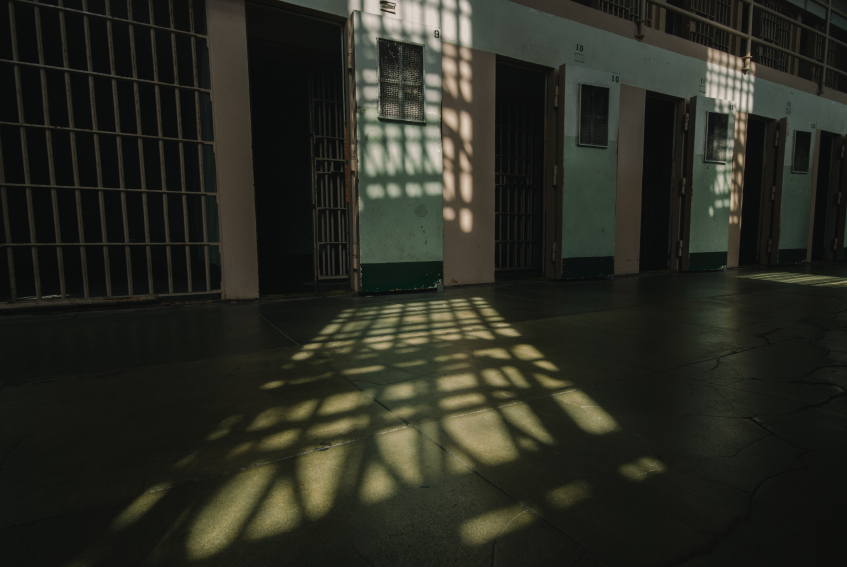Correctional officers are responsible for maintaining security and order in corrections facilities. They oversee inmates, keeping track of inmates, preventing or dealing with inmate disturbances, fights and escapes. With an online degree in corrections, you’ll learn how to effectively keep order and maintain a safe, secure facility.

Online Corrections Degrees
A high school diploma or equivalent is the minimum requirement to become a correctional officer, but many state and local agencies will require college credits, or law enforcement or military experience. For those working at the federal level, a bachelor’s degree is required, in addition to full time experience in counseling, assistance or supervision.
An online corrections degree program will provide you with the skills and knowledge you’ll need to become an effective correctional officer, with courses in safety and security, law, and management. You’ll also be instructed in responding to emergencies, maintaining order, and developing discipline.
Working as a Correctional Officer
A career as a correctional officer will give you the opportunity to work directly with inmates as they are rehabilitated. Both challenging and rewarding, this career field is specifically designed for individuals with a passion for our criminal justice system.
Though there is still a strong need for correctional officers, a downward trend in crime and a move toward shorter sentences means that state governments may not need as many correctional officers as they have in the past. However, job prospects in the private sector are growing, as many public authorities develop private contracts for prison services. Between 2019 and 2029, this profession will see about 33,000 annual job openings due to a blend of new job growth, retirements, and natural job turnover.
According to the Bureau of Labor Statistics (BLS), correctional officers earned an average salary of $52,340 as of May 2020. While early career professionals in this field earn about $37,950 (representing earners in the 25thpercentile), the most seasoned pros earn closer to $81,940 (representing earners in the 90th percentile).
Nearly all correctional officers work for federal state, or local governments, typically within correctional facilities. In fact, of the 406,000 correctional officers jobs in the U.S. as of May 2020, about 365,000 were in state or local governmental agencies. However, a growing number of correctional officers also work for private companies that are contracted to provide correctional services.
An associate’s or bachelor’s degree in an area related to criminal justice may also lead you to careers in:
- Court advocacy
- Law enforcement
- Juvenile justice
- Homeland Security
- Family services
May 2020 Bureau of Labor Statistics salary and job market trends for correctional officers and jailers. Figures represent national data, not school specific information. Conditions in your area may vary. Data accessed June 2021.
National job growth projections for correctional officers and jailers sourced from the U.S. Department of Labor-sponsored O*Net database (2019-2029).
Online Corrections Degree Curriculum
Corrections programs will teach you how to maintain order in theory and practice. Your corrections degree curriculum may include some or all of the following coursework:
- Basic Criminal Justice: In this introductory course, students are introduced to the administrative guidelines, policies and procedures of the criminal justice system.
- Corrections Systems: This class teaches the basic responsibilities and duties of a correctional officer. Sessions may be tailored to a particular security level, such as state prisons, and may also address practices limited to a specific state.
- Ethics in Criminal Justice: Here, students delve into the ethical dilemmas faced by correctional officers in the workplace. Topics may include the proper application of authority and issues arising from misconduct.
- Research Methods: A standard course in many degree programs, in the context of corrections it includes social science research within the criminal justice realm. Basic research principles, such as proper sampling, are studied.
When corrections is taught as a sub-specialty within a criminal justice major, specialty classes often cover the history of corrections, legal issues in corrections and corrections techniques.
Start Your Career as a Corrections Officer
Your career as a corrections officer starts today. Explore accredited online corrections degrees from leading colleges and universities to find the right program for you.



